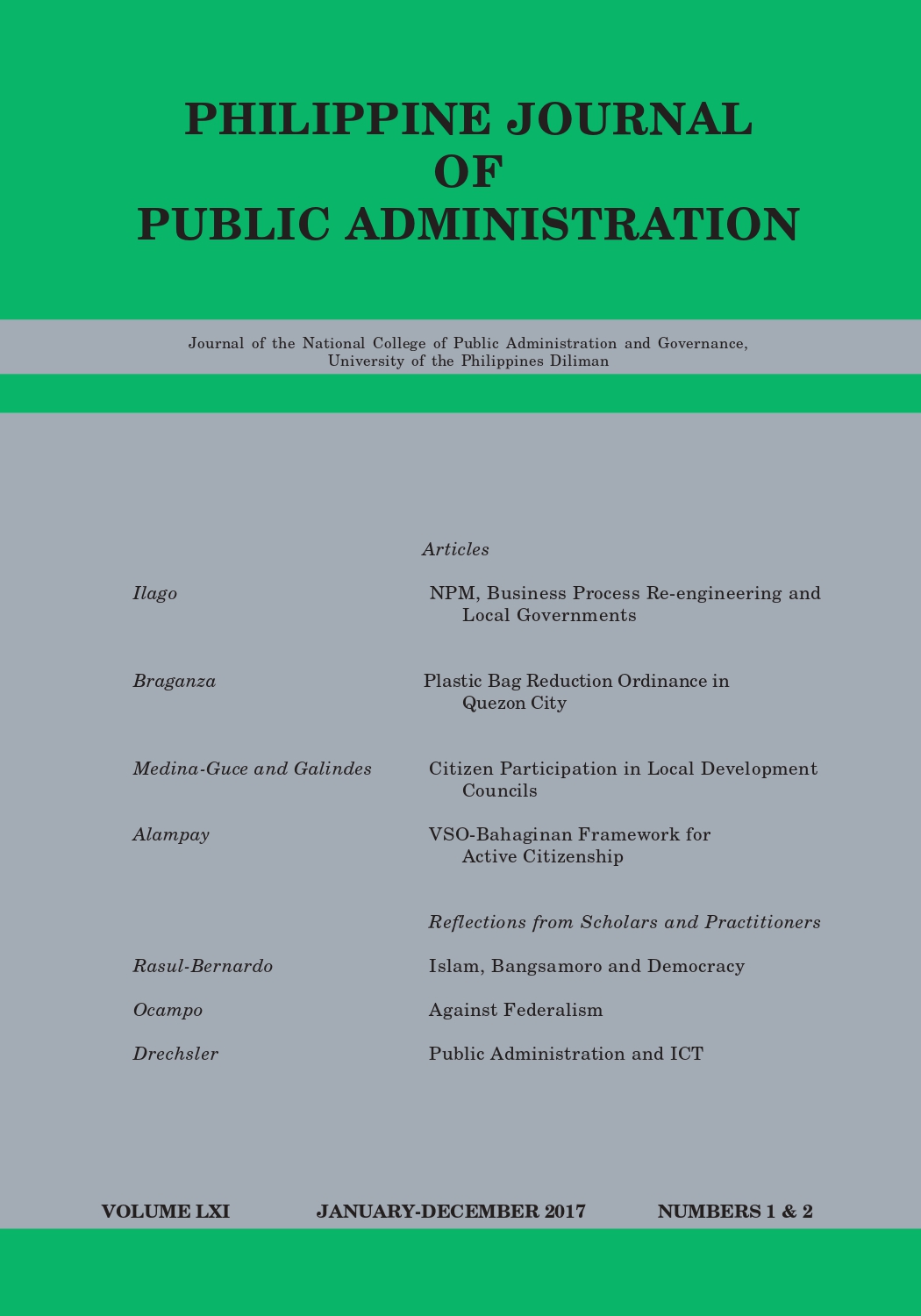Against Federalism: Why It Will Fail and Bring Us to the Brink
Abstract
The proposed shift to a federal form of government is unlikely to succeed and may lead instead to the dismemberment of the Philippines. Given the dominant Pimentel model of the proposal, federalization will critically weaken the central government by sharing its sovereign powers, devolving most of its functions, and substantially more of its resources with the new component states. Rather than promote equitable development, federalization, according to this model, will promote interstate competition and thus enable the better-endowed regions to develop farther ahead of the others. The central government will be too emaciated to equip weaker states to catch up, aggravating their laggard conditions and may further fuel secessionist sentiments. While one possible effect of federalization may be to inhibit centrifugal tendencies, it also risks sufficiently arming defection-prone states to secede and leads to the breakup of the nation-state. This article argues that, for all its faults, the existing unitary system is better because it can do at least one thing a federal government can no longer do, that is, redress imbalances in favor of lagging regions and retrieve devolved power if it is misused. Moreover, the parliamentary system that the proponents put on top of their federal structure may be able to do far fewer things faster and will be less democratic than the central as well as areal division of powers embodied in the existing unitary system of the Philippine government.



